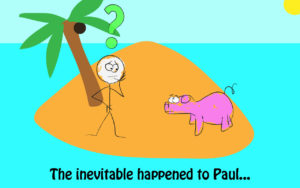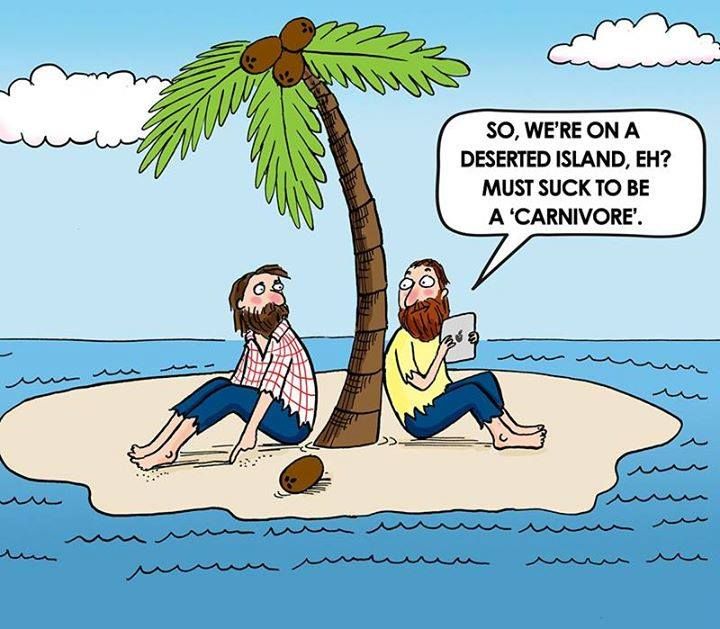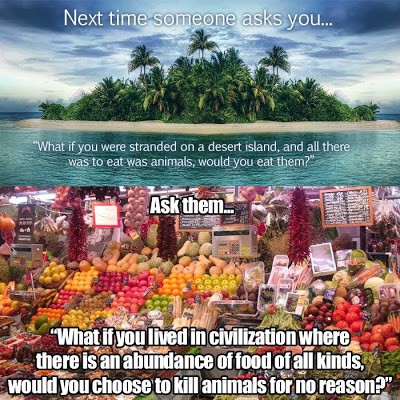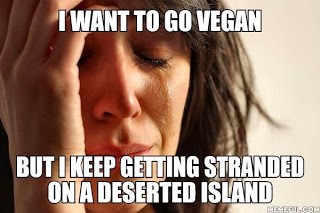What’s in a Meme?
When presented with veganism, nonvegans may be understandably curious about the limitations of vegan principles in real-world scenarios and conflicts (“Would you swat a mosquito?”). Sometimes, however, nonvegans present fantastical scenarios to truly test these limits. Perhaps one of the most frequent scenarios employed by nonvegans asks vegans how they might survive if they found themselves on a deserted island.
This particular thought activity makes little sense on its surface. After all, how many of us are likely to find ourselves on a deserted island adrift in the ocean? For that matter, folks in real-world survival situations have been known to engage in all manner of morally questionable behaviors. This includes everything from killing and eating dogs to killing and eating humans. The point is that we may understandably make exceptions to our ethics when we are under extreme circumstances.
Being presented with this variant of the “what if” scenario is something of a rite of passage for many vegans. Accordingly, the vegan community has reclaimed the trope for a laugh.
 Image from Vegan Chowhound
Image from Vegan Chowhound
Real-life Deserted Islands
Although these memes are well-meaning, they provide an interesting example of white and middle-class privilege in vegan claimsmaking. As has been argued by Dr. Breeze Harper, mainstream vegan discourse too often defaults to a post-racial, “colorblind,” or classless approach to outreach efforts. This approach overlooks important demographic differences regarding the applicability or appropriateness of vegan proscriptions for change.
In a world still bound by a legacy of colonialism and racism, “deserted islands” of oppressed communities abound. It is a fact that millions of folks in developed and developing countries do live in emergency situations. Food deserts, which disproportionately impact poor persons and people of color, are real-life “deserted island” scenarios. Those living in food deserts experience structural inequalities that make healthy and ethical food choices nearly impossible.
The hypothetical “deserted island” scenario is meant to test the limits of veganism. If one was to find themselves so isolated and limited in resources, would one, lacking any alternative, consider eating something (or someone) that compromised one’s scruples? Yet, for a large section of the human population, this is no thought experiment. Food security is a real-life, on-going, unrelenting emergency.
Subsequently, in order to realize a vegan world, activists must contend with capitalist exploitation, structural inequality, and environmental racism. Those living in society’s”desert islands” do not have the same access and resources as privileged folks living on the “mainland.” Rather than interrogate those who are trapped on figurative islands, activists should support efforts to increase access and affordability.
A version of this essay was originally published on December 7, 2013 on The Academic Activist Vegan.

Readers can learn more about the politics of overpopulation in vegan rhetoric in my 2016 publication, A Rational Approach to Animal Rights. Receive research updates straight to your inbox by subscribing to my newsletter.


